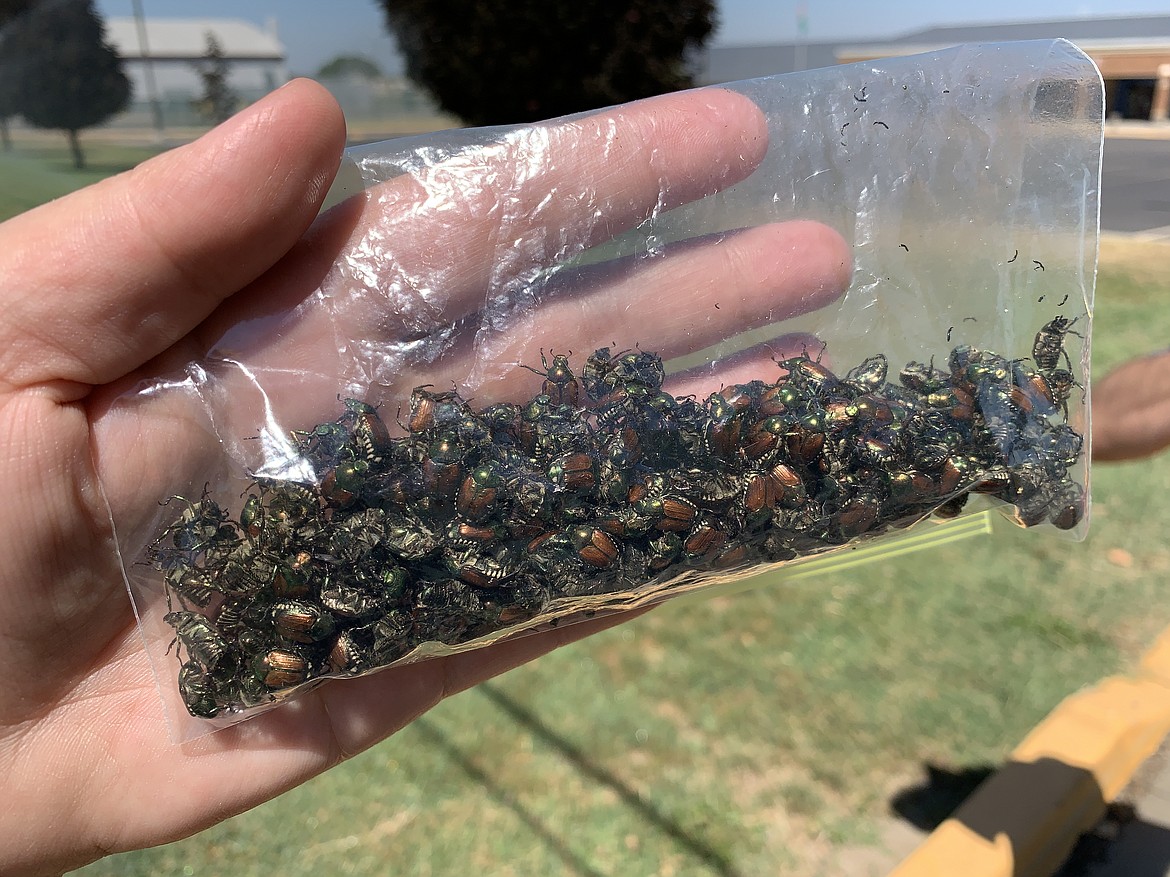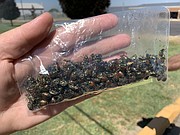Japanese beetles in Yakima Valley pose risk to region’s farms
GRANDVIEW — Japanese beetles may not be anywhere nearly as interesting as Asian giant hornets, but they could be a lot more dangerous.
The shiny green and copper-colored beetles are pretty little bugs, really, and you’re likely to find them on your roses if you find them anywhere.
But according to Karla Salp, a public engagement specialist with the Washington State Department of Agriculture (WSDA), they pose a far greater danger to agriculture in this state than any hornet — even a 2-inch-long one with a giant stinger.
“They eat over 300 different types of plants, and that’s the main concern for the Department of Agriculture,” Salp said. “They have the potential to do more damage sooner than the Asian giant hornet, and more direct damage.”
While Japanese beetles are endemic east of the Mississippi, they have not gained a foothold in Washington state, and the WSDA would like to make sure it stays that way.
“We have no idea how they got here, but it appears they have been here several years,” Salp said.
Salp said that WSDA employees caught as many as 2,000 of them in the Yakima Valley town of Grandview since WSDA started trapping the shiny green bugs on June 29.
“We trapped 415 on the first day,” Salp said. “That’s a lot of beetles.”
Adult Japanese beetles munch on leaves, Salp said, and while they are particularly fond of rose bushes, they will eat just about anything. And that includes crops important to farmers in the Yakima Valley — grapes, hops, apples, cherries and corn.
“Their absolute favorite thing is roses,” Salp said. “But they don’t attack the fruit directly. They like flower buds and leaves.”
However, the adult beetles aren’t the only threat. Salp said they lay their eggs in the ground, and when they hatch, the beetle grubs much on roots, and themselves are particularly fond of turf grass.
“They’re a real concern for nurseries and homeowners,” she said.
Currently, the WSDA is asking Grandview residents to put out beetle traps and report any catches or sightings along with a photo, noting Japanese beetles do not bite or sting, so they can be safely and easily collected.
The goal is to determine the extent of the beetle presence in the Grandview area, which appears to be centered on a cluster of schools.
Commercial beetle traps can be purchased at local hardware or garden supply stores or online, and any beetle caught should be reported to the WSDA at agr.wa.gov/beetles.
Washington State University advises homeowners wanting to kill adult beetles to apply any pesticide certified for Japanese beetles, as well as lawn treatments that can either kill eggs as they are laid or will kill the grubs as they develop.
As for WSDA dealing with the beetle infestation, Salp said that will have to wait until state agriculture authorities know the extent of the problem.
“Treatment is in the future, and it’s not something we will be doing this year,” Salp said. “But every female beetle collected takes one out of circulation.”
Which is more than 100 eggs not laid, grubs that won’t hatch, and rose bushes that won’t be nibbled and munched on.
Charles H. Featherstone can be reached at [email protected].




